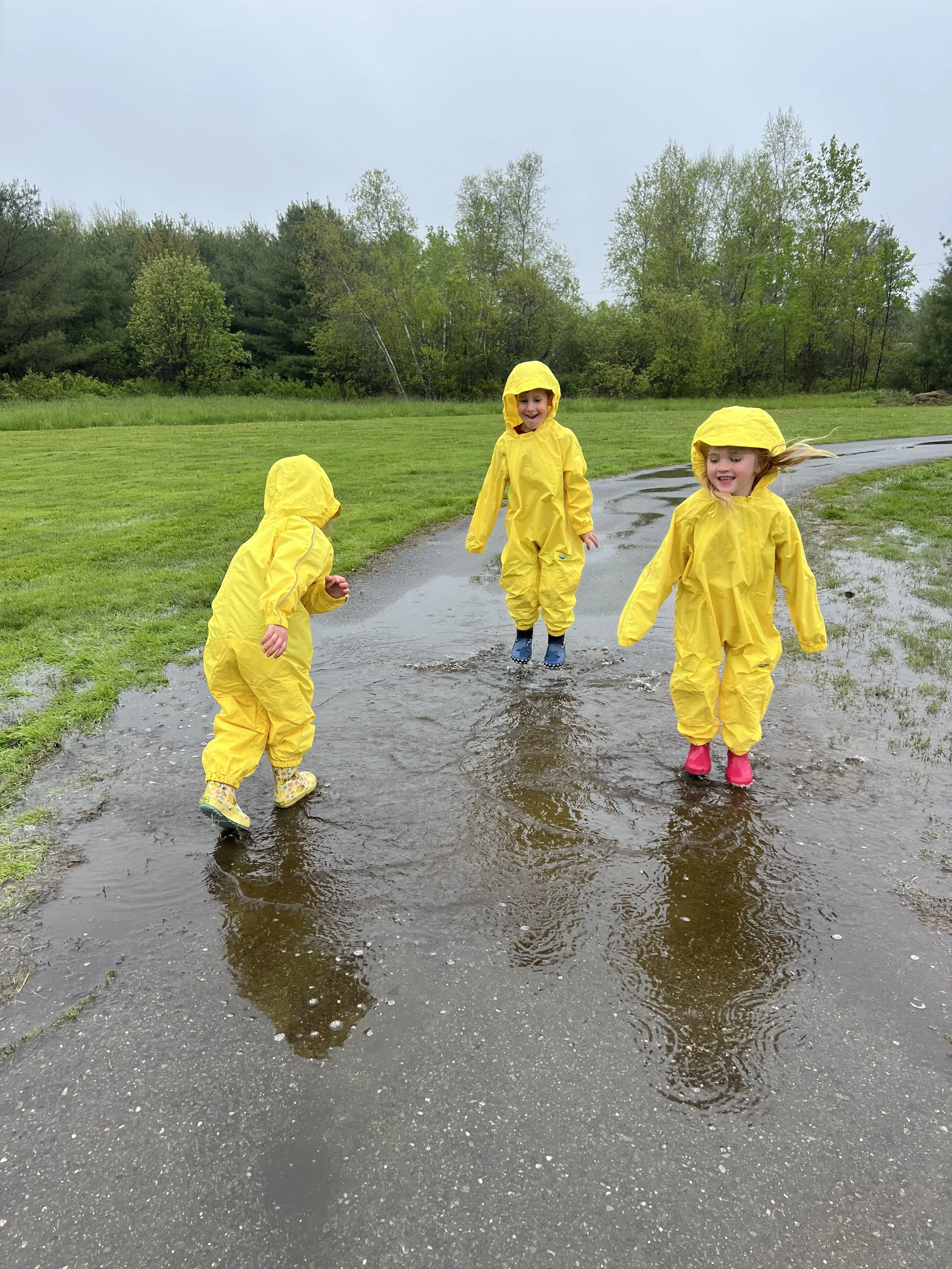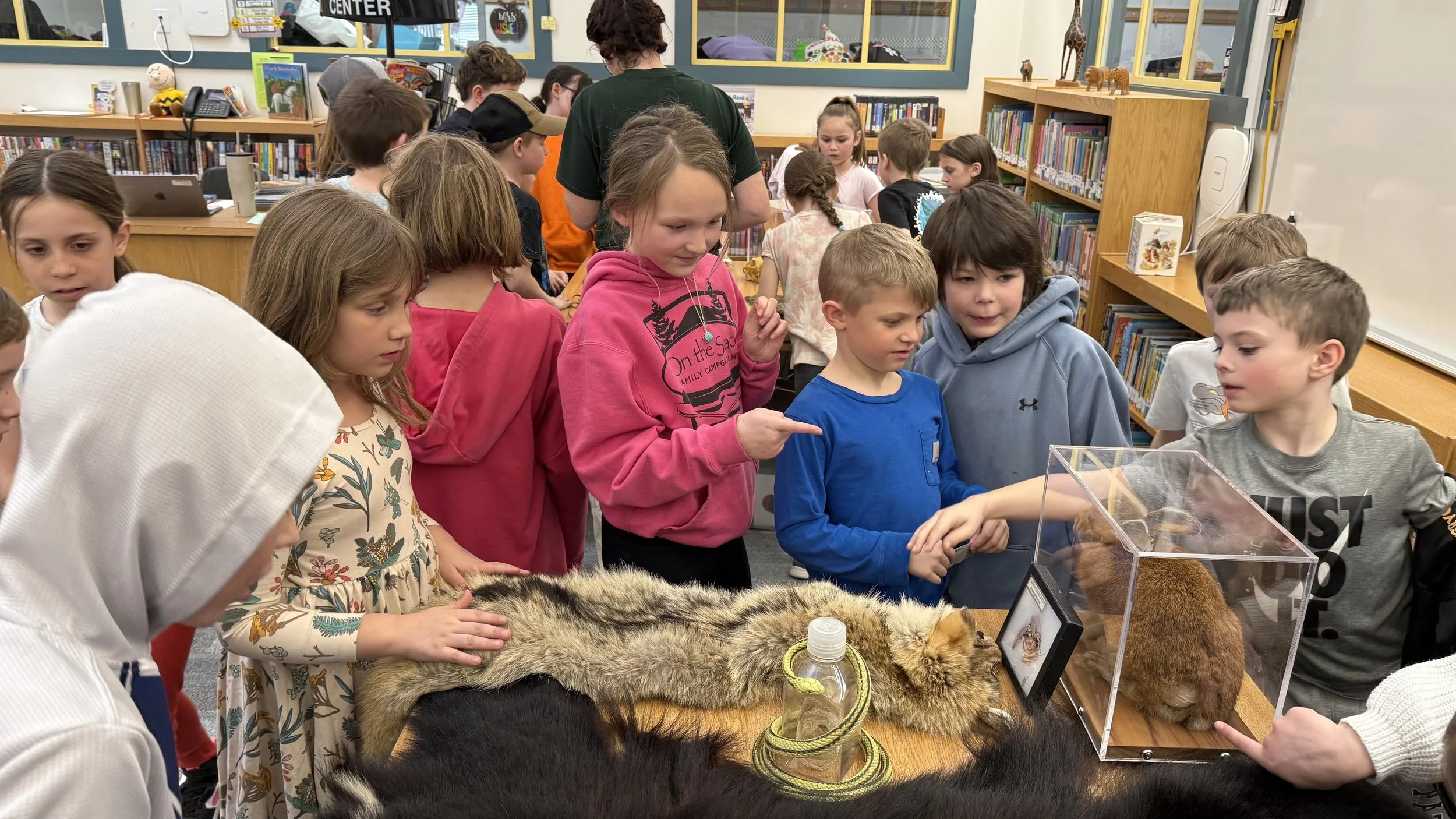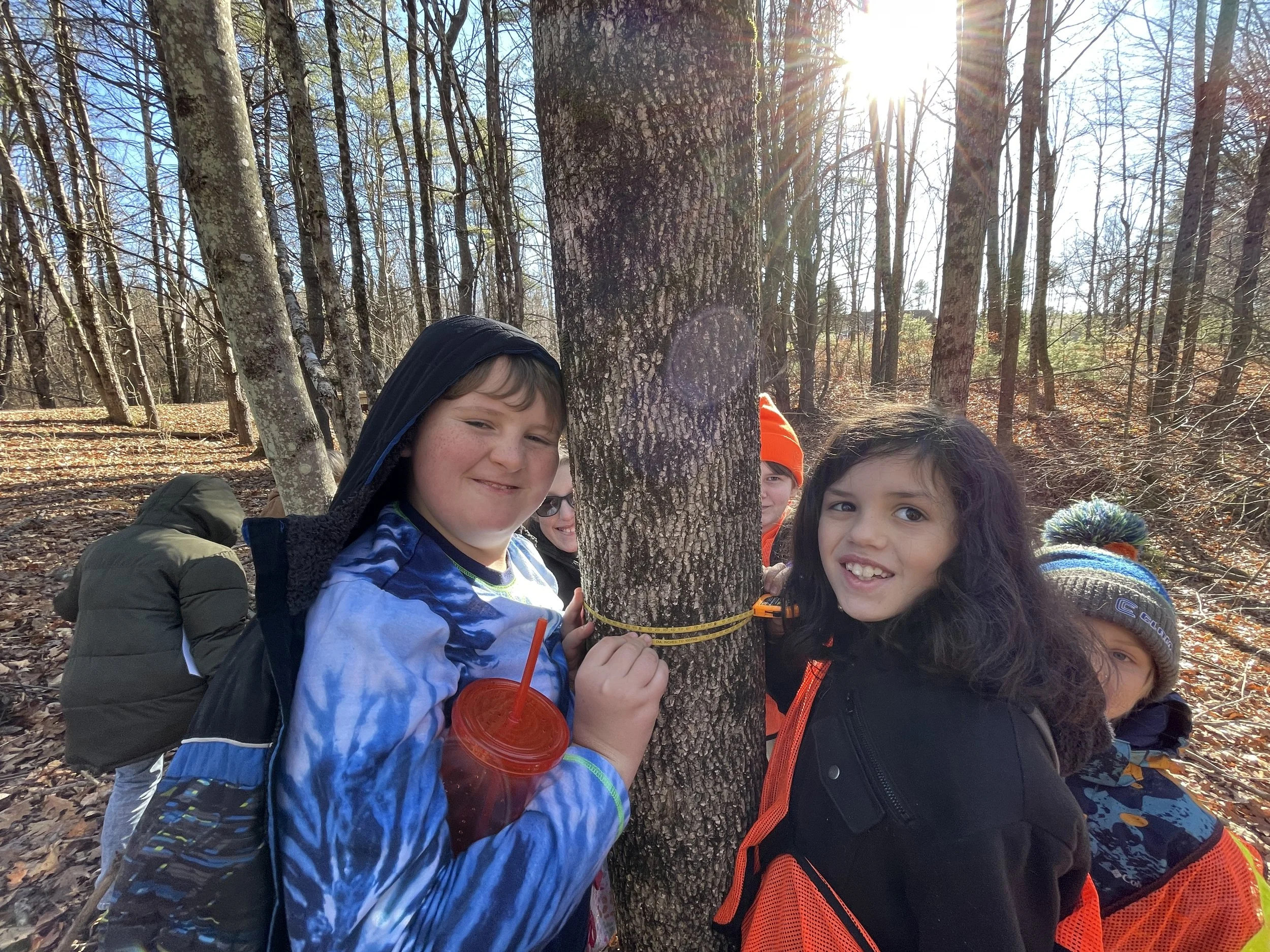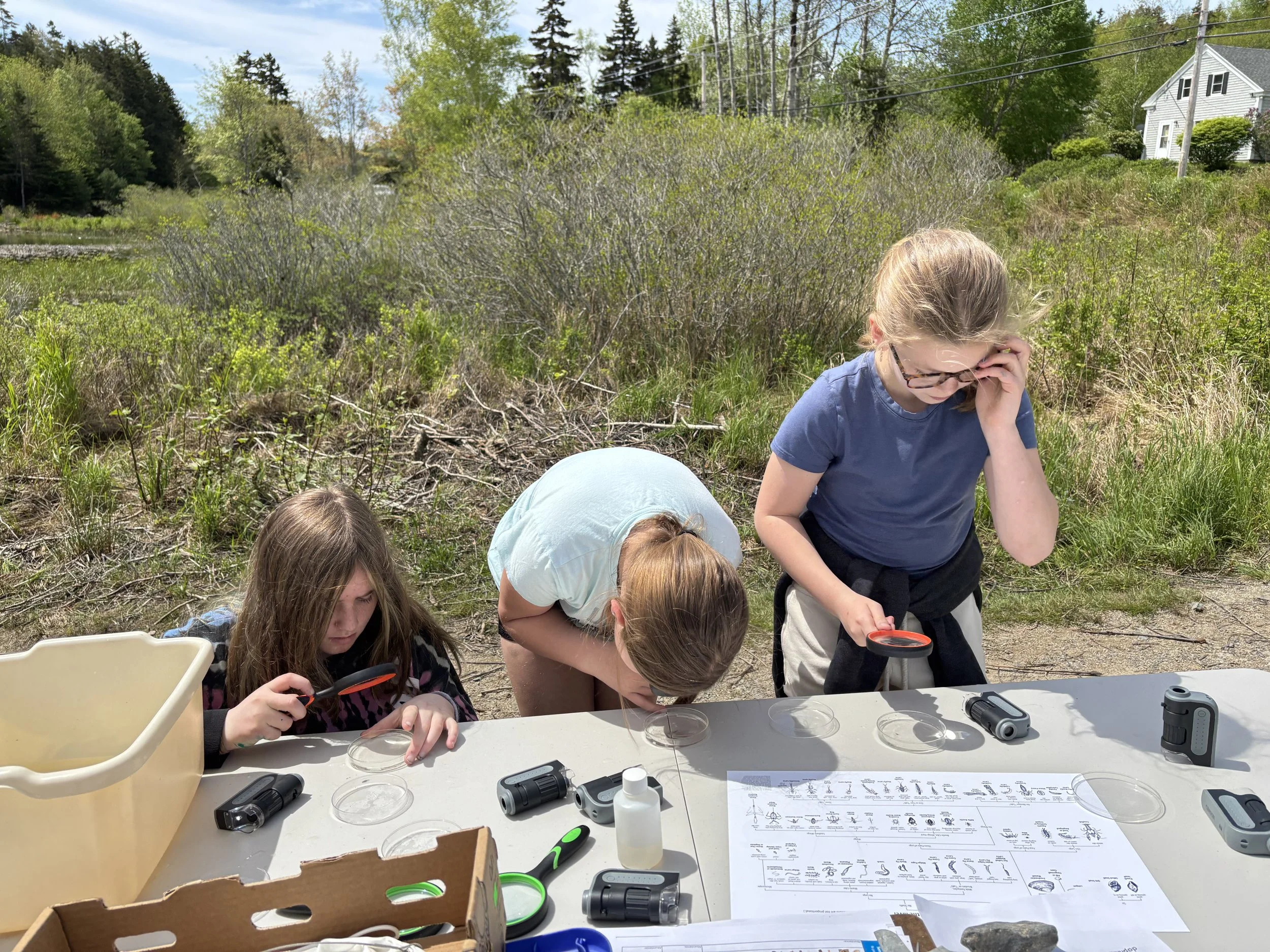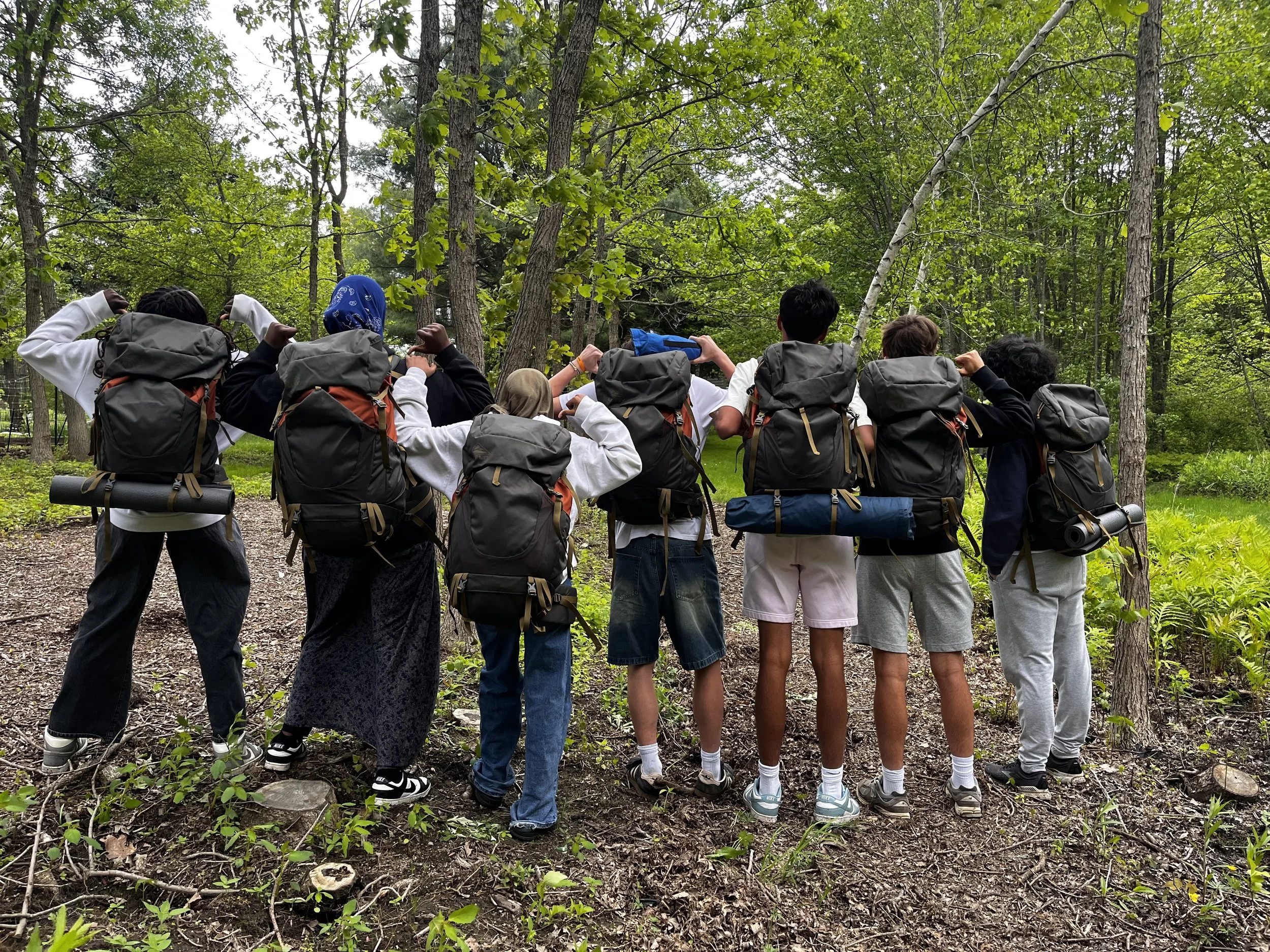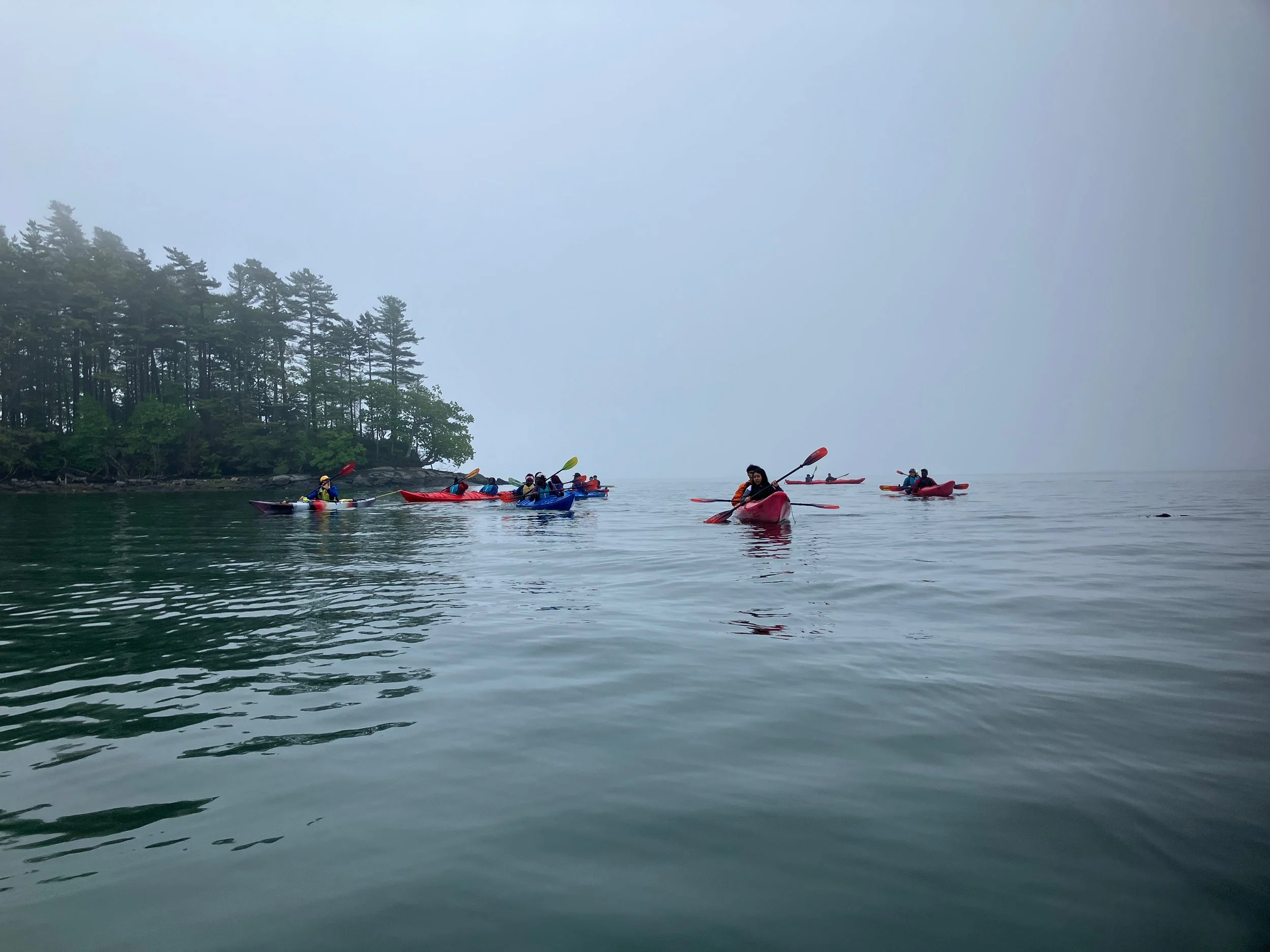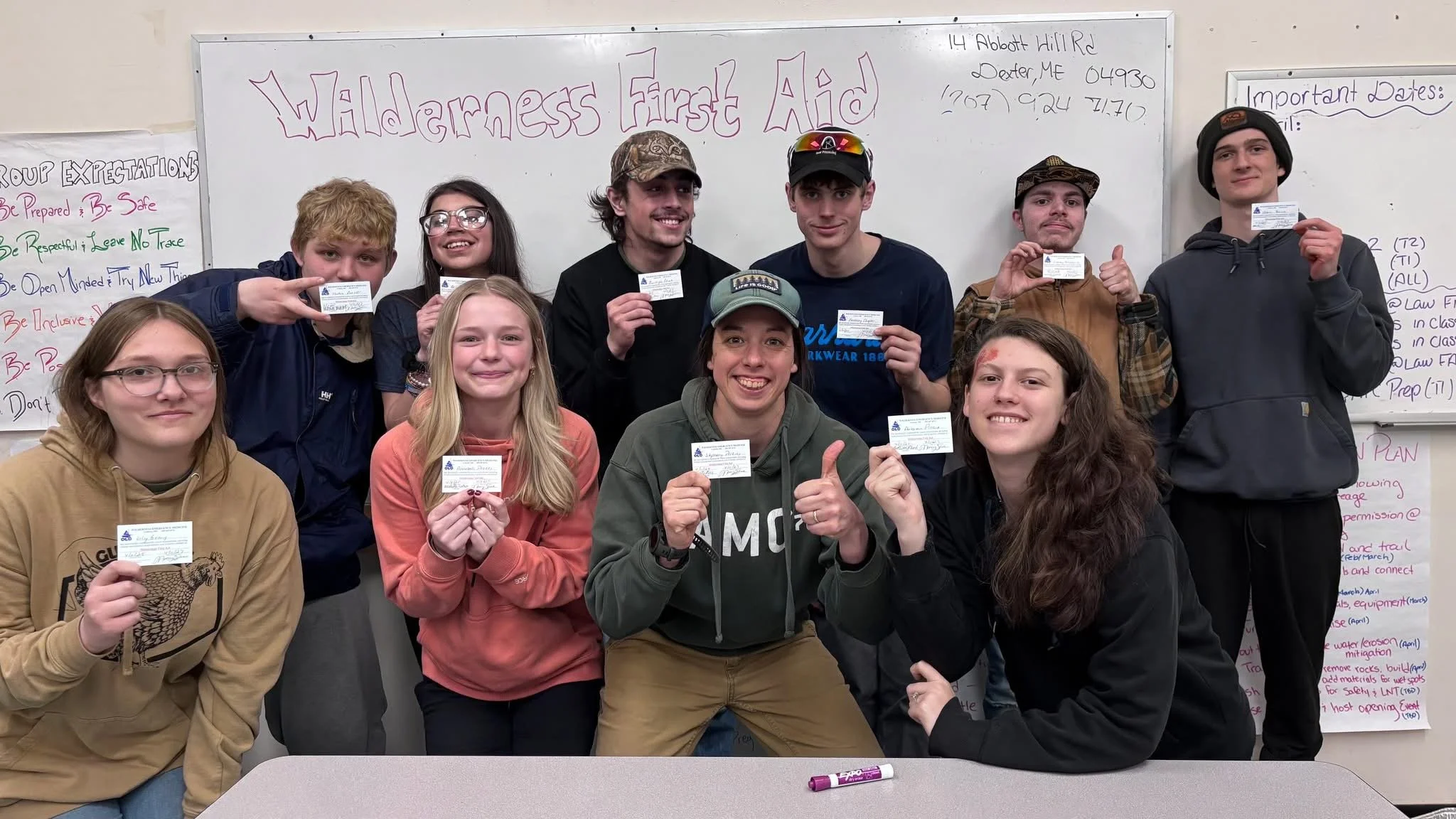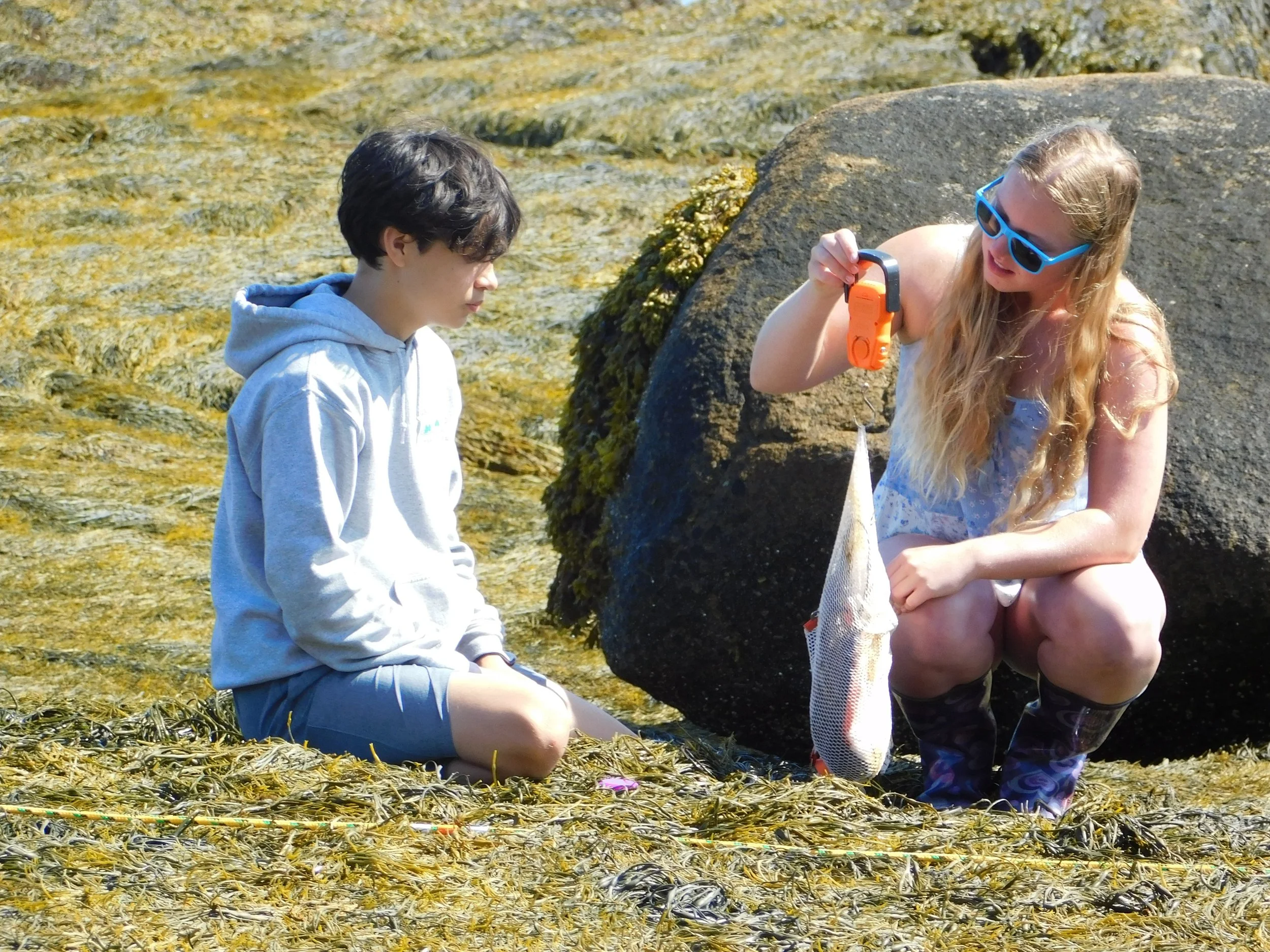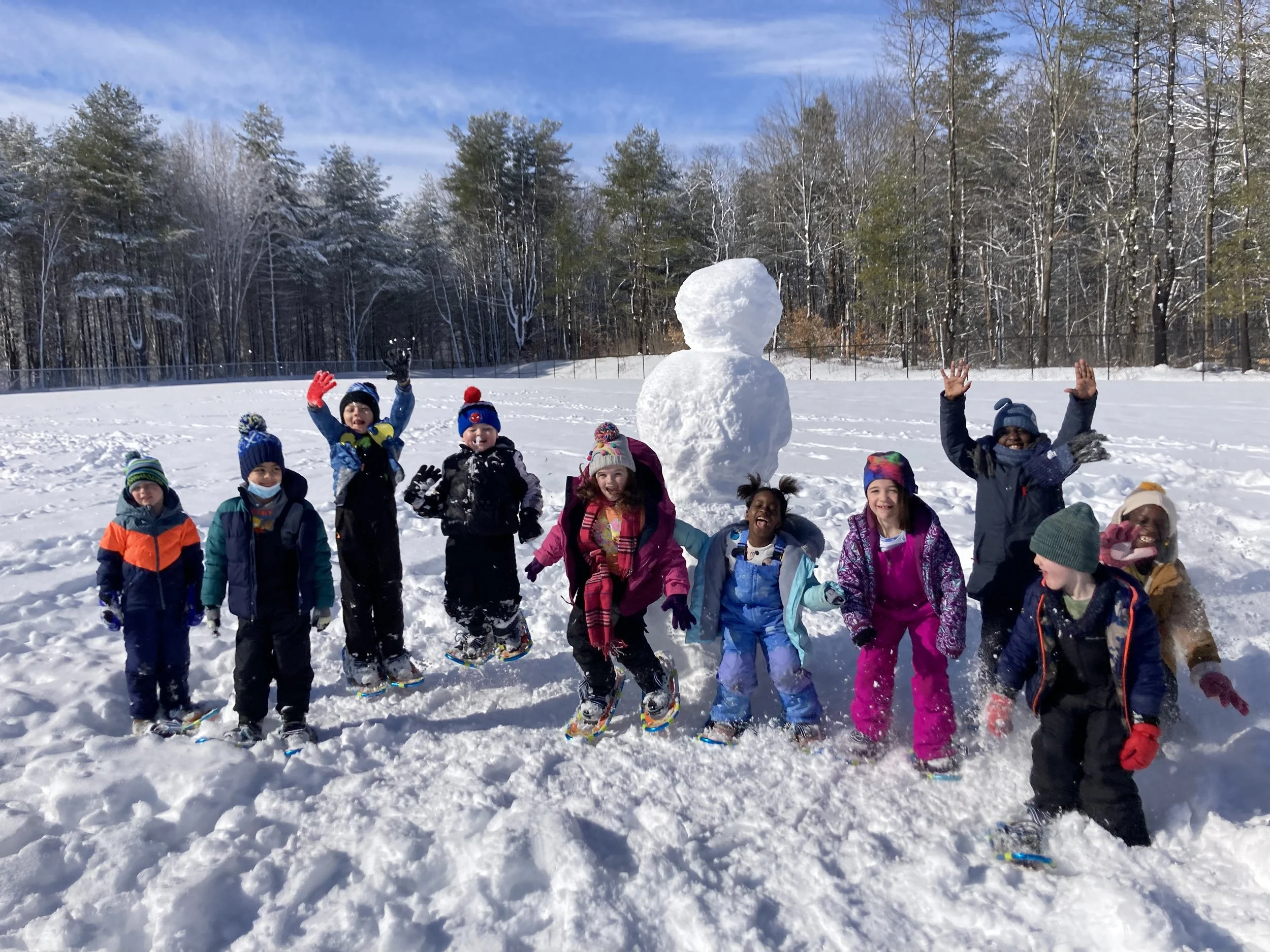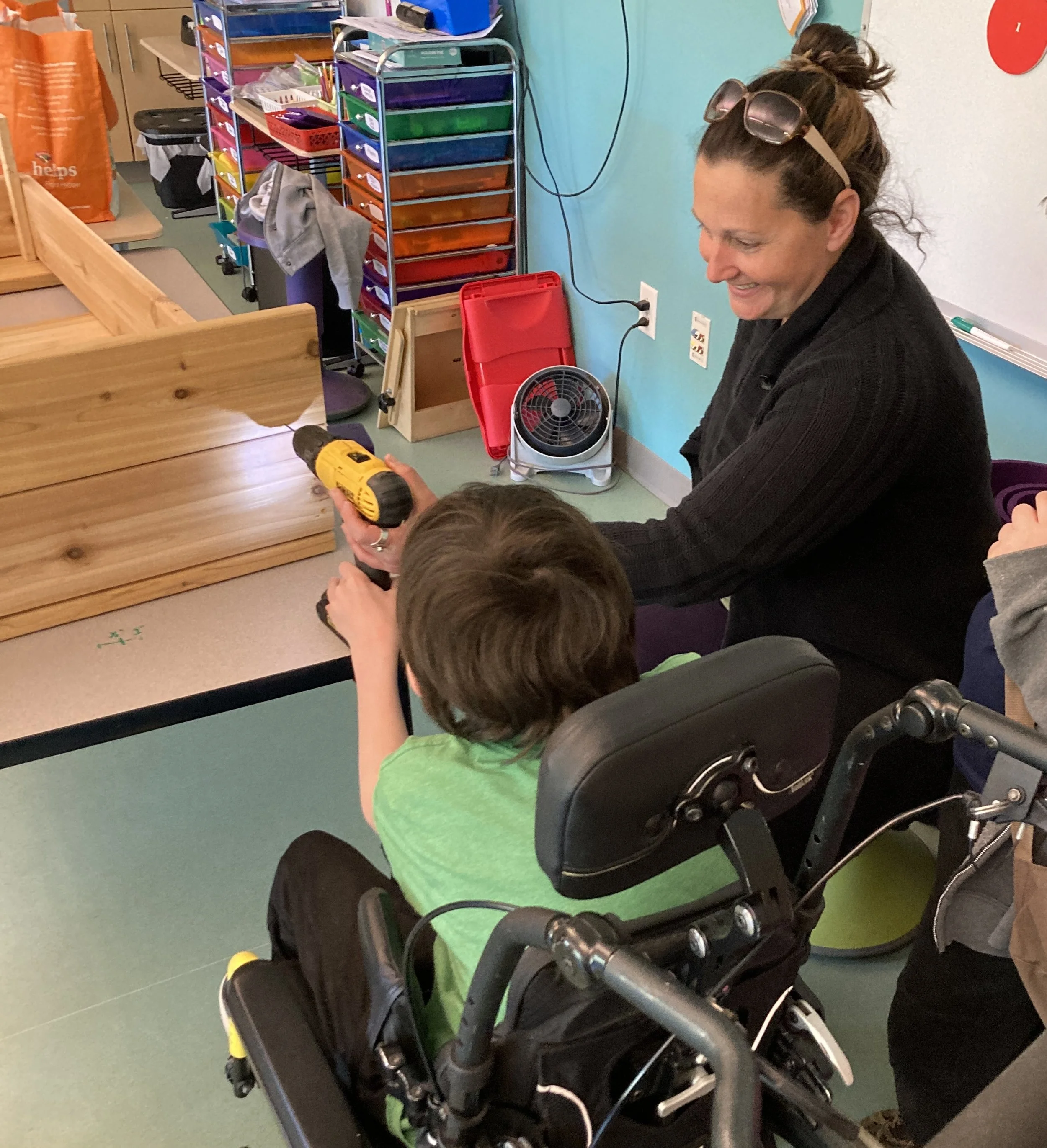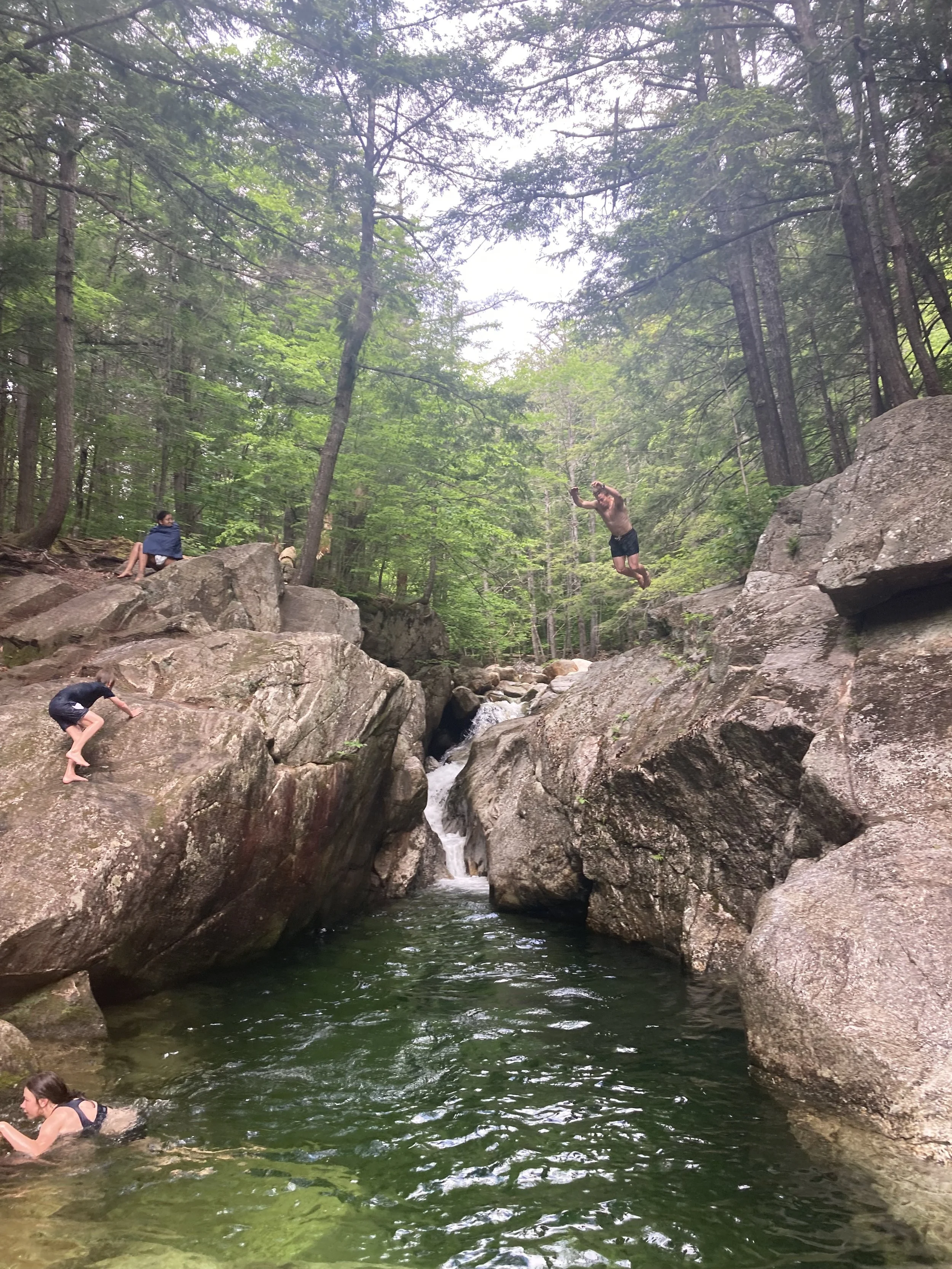
SUPPORTING EDUCATORS
Mini Grants for Outdoor Learning
Up to $1,500 grants for public schools and teachers to support outdoor learning
projects, environmental education, and Wabanaki studies
Application for 2025-2026 is currently closed. We will be in touch with applicants mid-November.
Mini Grants for Outdoor Learning offer up to $1,500 to public schools and teachers to support outdoor learning and environmental education projects. Most commonly, this funding is used to buy gear and/or supplies needed to support outdoor learning activities. This funding can also be used for professional learning to advance your outdoor learning teaching skills, collaborating with a community partner organization on a nature-based project, supporting Wabanaki Studies projects, and/or adaptive gear that supports ALL kids having access to outdoor learning in your school. We want to meet you where you are and help reduce the barriers you face in getting your students outside learning across all different grade levels and content areas.
Applications for the 2025-2026 school year will open on September 22nd and close on October 17th. Applications are then reviewed by a team of MEEA staff and external grant reviewers using a rubric. MEEA will inform applicants of funding decisions and checks will be sent out to schools in mid-November. Grant recipients will submit reporting requirements including photos and stories about their outdoor learning projects with MEEA by the end of the school year.
Read about the outdoor learning projects from last school year’s mini grant recipients to get inspiration for your application!
MEEA mini grants fund outdoor learning projects like…
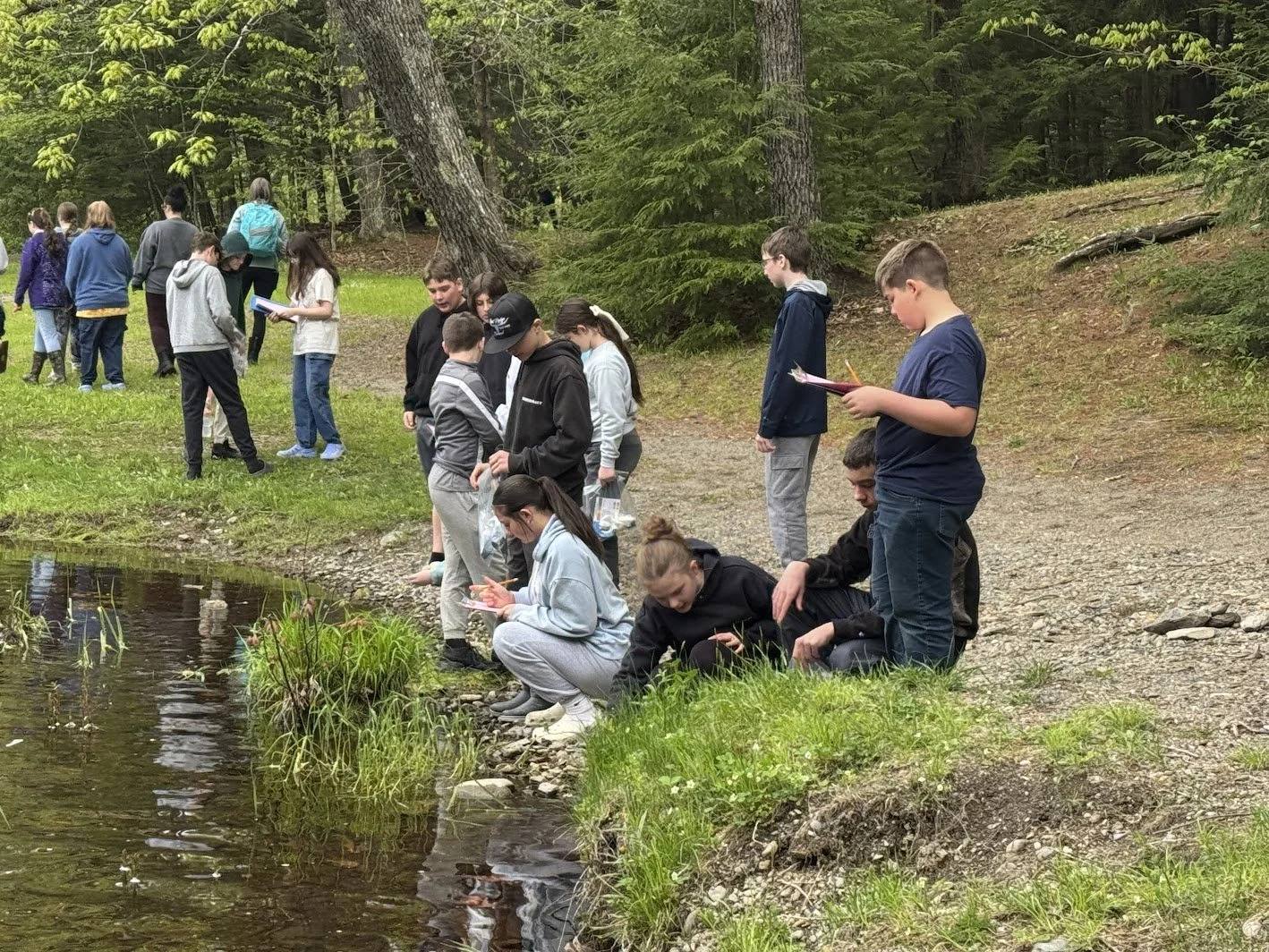
Frequently Asked Questions
-
Maine Public (Pre-K-12) teachers and schools, preference will be given to schools with high need (determined using a combination of the most recent Maine DOE % Eligible for Free and Reduced Lunch data and self reporting from applicants) and schools that have not received mini grant funding in the past. Projects that demonstrate collaboration will also be prioritized. Some ideas for grant partners can be found here and here.
If you have an idea for a project but are not based at a public school please contact anna@meeassociation.org and we will try to connect you with a school.
-
Funding can be used for any project that advances outdoor learning in your classroom or school in the 2025-26 school year.
Most commonly, this funding is used to buy gear and/or supplies needed to support outdoor learning activities. This funding can also be used for professional learning to advance your outdoor learning teaching skills, to support a collaboration with a community partner organization on a nature-based project or experience, and/or adaptive gear that supports ALL kids having access to outdoor learning in your school.
We want to meet you where you are and help reduce the barriers you face in getting your students outside learning across all different grade levels and content areas. We are less likely to fund projects that will not benefit students during regular school hours, and less likely to fund projects that are sports-based including recess equipment.
We strongly encourage collaborative projects with community partner organizations such as a local land trust or environmental education center, as research shows these projects often have the most student impact and long-term sustainability. If you need support around building relationships with community partners, please reach out to us!
-
Yes! We encourage you to apply even if you received a grant last school year! We will give priority to highest needs schools, and we are excited to support educators we have not supported in the past, but you are still eligible for support if you have received funding in the past. We are not likely to fund grantees who did not complete their project during the school year when it was awarded, or who did not complete the final grant report.
-
Each year we raise funds for these grants and therefore the total amount available to grantees fluctuates, along with the total number of applications. MEEA staff and volunteer grant readers may decide to partially fund grants and grantees may adjust projects based on the amount they receive.
-
Concise but detailed description of the need or project you are seeking to fund
A budget with a list of (approximate) costs
Information about any collaborations or partnerships
Description of how students will learn about nature as a result of the grant
Description of how the grant will positively impact the students, staff, and wider community
-
Yes, we would like to see evidence of research into the costs associated with your project. We realize there may be adjustments needed when you go to spend your funds. See this sample application for an example of how to write out your budget.
-
You have received funding in the past; we do sometimes make grants year to year to the same teachers but we try to prioritize new teachers. There may be another teacher in your school who received funding this year and we encourage you to collaborate if possible.
Didn’t complete project or final report from previous school year
Not directly connected to learning about nature
Not enough detail in application
Project can’t be completed with mini grant funding (part of a larger project or fundraiser)
Not eligible for funding due to private school/childcare
-
The final report is short and simple: we ask for photos of your project that we have permission to share with the public and a concise write-up of how you used your funds to advance outdoor learning in your school. The final report will be due in June.
These grants are 100% funded through donations, so we need your support to ensure that these funds continue to be available to educators. Thank you so much for whatever amount you can contribute so we can continue to help students learn outside.
Educator and Student Testimonials

Bethany Browne South School, Rockland ME — Pre-K students suit up in rain gear to play in the woods on a wet day. “Watching the students observe the same spaces as the seasons change and witnessing their wonder at the simple blessings of nature has been incredibly rewarding. One student told me "I'm really thankful for Forest Friday".

Bethany Browne South School, Rockland ME — Pre-K students suit up in rain gear to play in the woods on a wet day. “Watching the students observe the same spaces as the seasons change and witnessing their wonder at the simple blessings of nature has been incredibly rewarding. One student told me "I'm really thankful for Forest Friday".

Grantee: Katie Strait Baxter Academy For Technology and Science — Students in marine biology and ecology classes raised salmon eggs and released the fry at the Little Androscoggin River on May 12th. MEEA funded the purchase of the equipment and materials to participate in the Fish Friends Program.

Grantee: Katie Strait Baxter Academy For Technology and Science — Students in marine biology and ecology classes raised salmon eggs and released the fry at the Little Androscoggin River on May 12th. MEEA funded the purchase of the equipment and materials to participate in the Fish Friends Program.
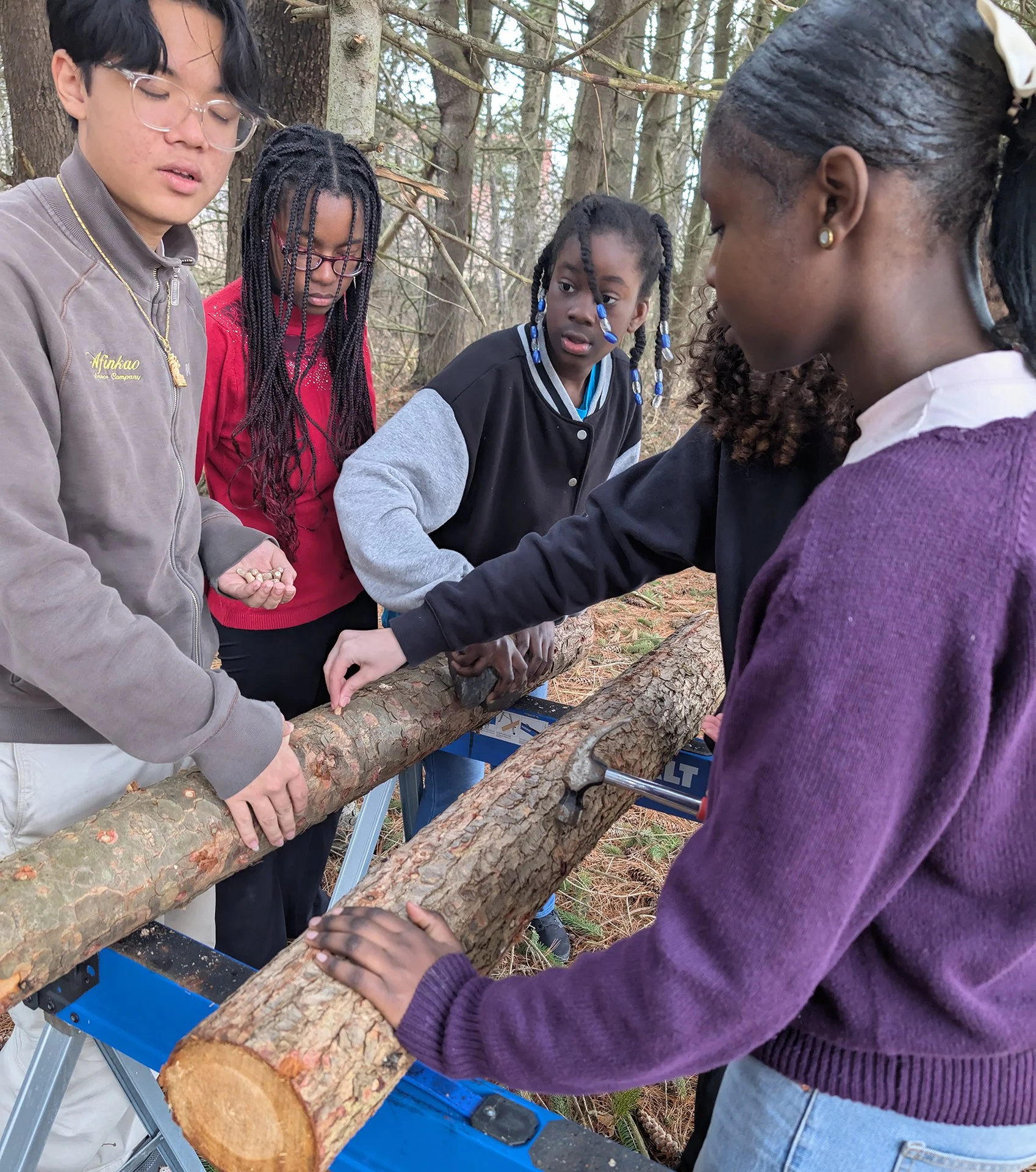
Austin Mehlhorn, Westbrook Middle School — Students from the Garden Club, Robotics Club, Functional Life Skills, STEAM classes, and multi-lingual classes built logs to grow mushrooms that were eaten by students in the school cafeteria. So CAP-tivating!

Austin Mehlhorn, Westbrook Middle School — Students from the Garden Club, Robotics Club, Functional Life Skills, STEAM classes, and multi-lingual classes built logs to grow mushrooms that were eaten by students in the school cafeteria. So CAP-tivating!
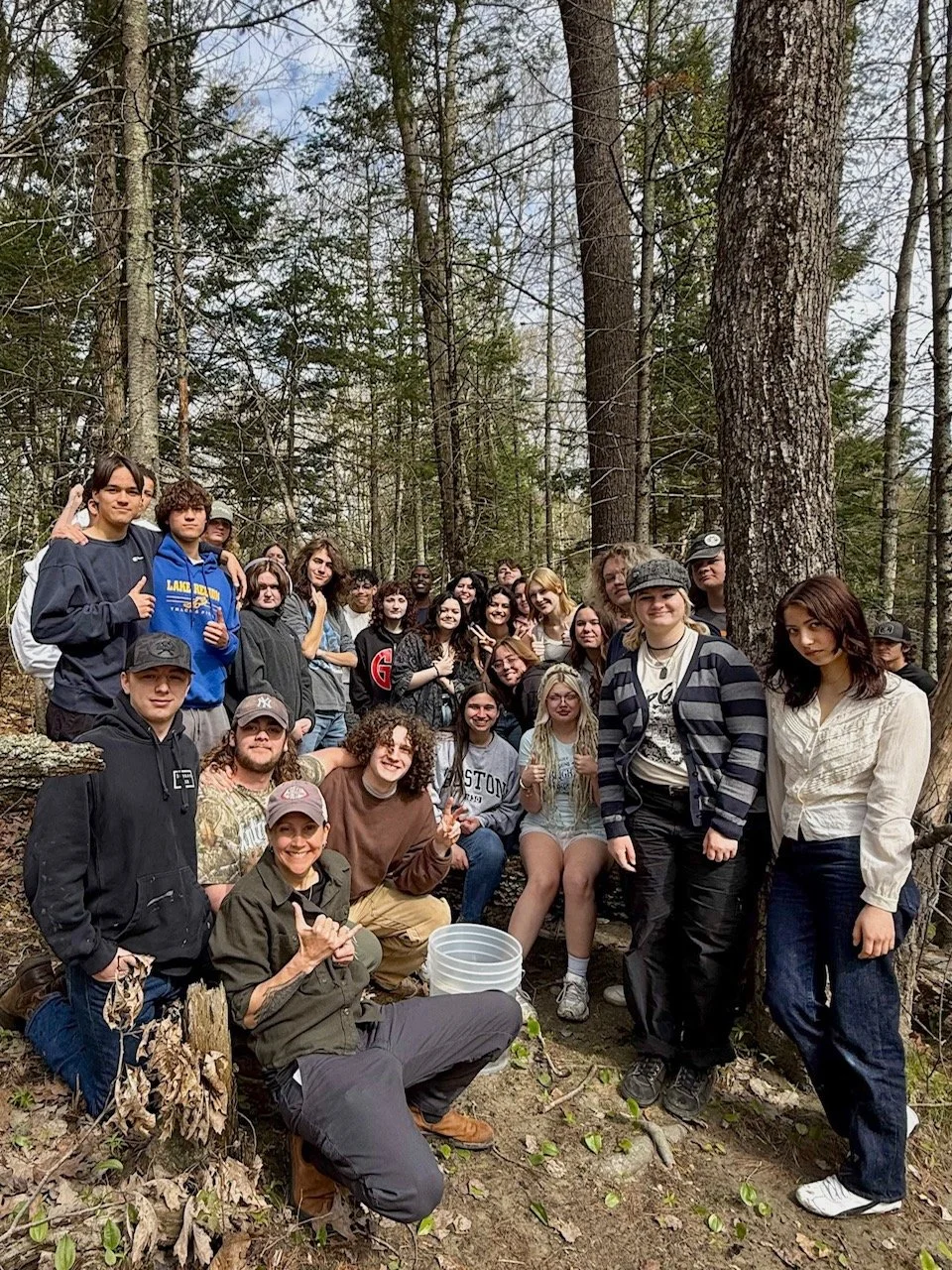
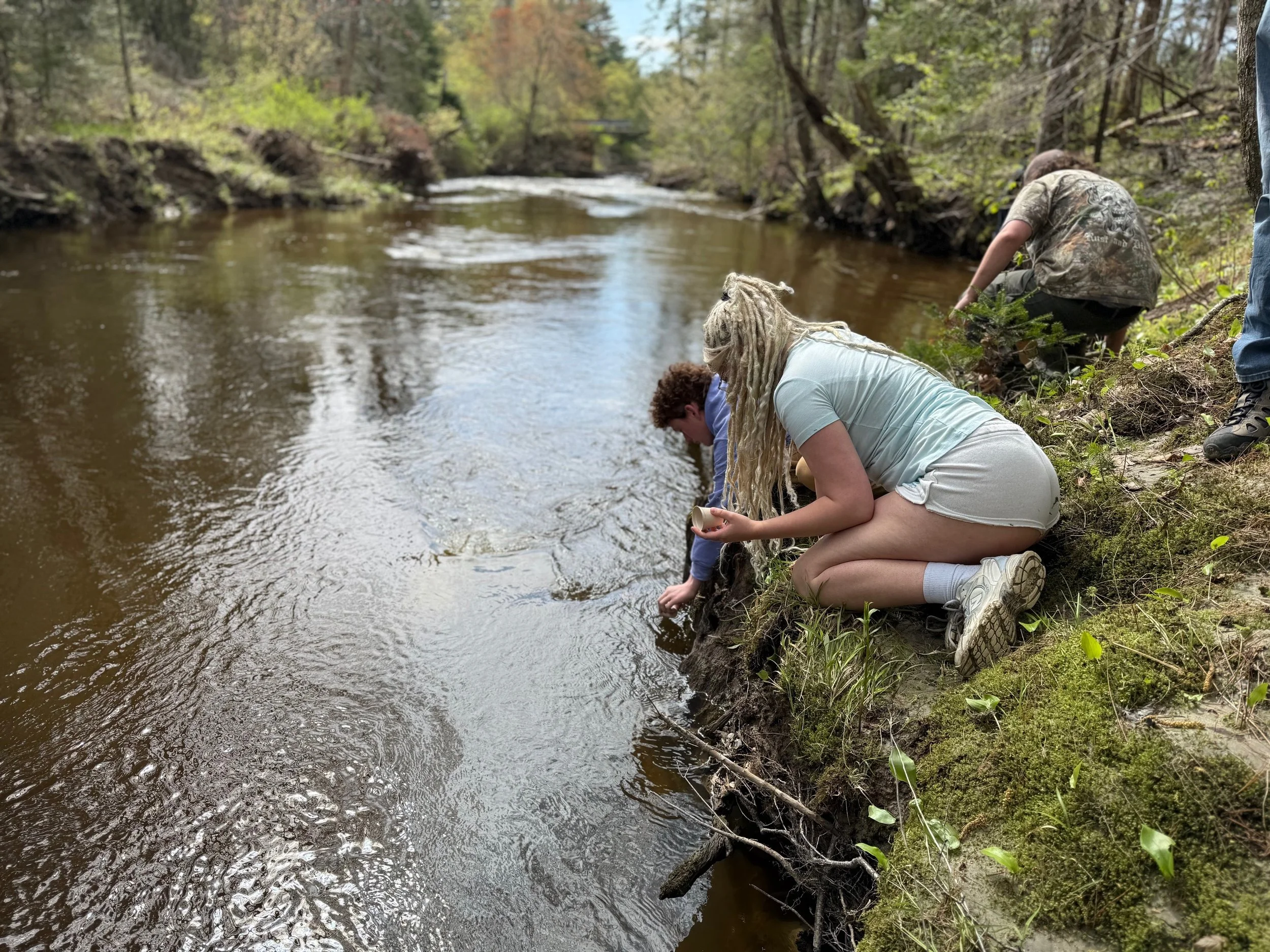

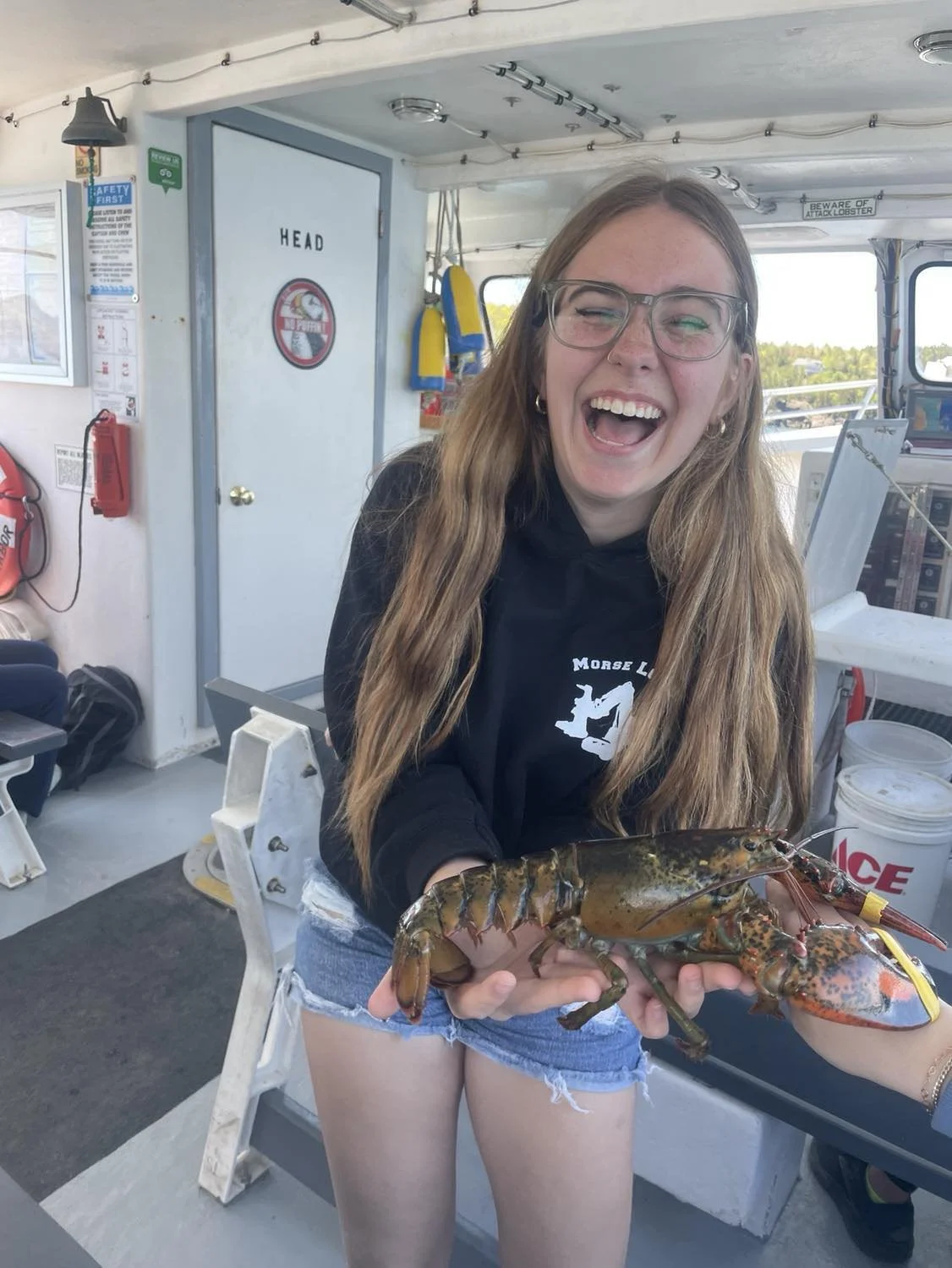

Explore the Fundees
We’ve reached schools in all 16 counties and prioritize a strong geographic spread when evaluating applications. You can learn more about each fundee by zooming into the map or through the listings below



